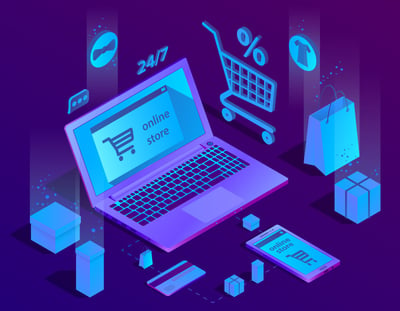September 4, 2024
 by Megan Harr / September 4, 2024
by Megan Harr / September 4, 2024

For experience-based businesses, ticket sales are the fuel that keeps the engine running. They’re how a venue maximizes capacity, generates revenue, and connects with guests.
However, with growing digitalization, traditional ticketing methods can fall short, leading to missed sales opportunities, operational inefficiencies, and frustrated customers. This is where online ticketing takes the lead by not only maximizing revenue but also enhancing the overall customer experience.
To optimize profit, it’s important to implement an online ticketing strategy that takes recurring revenue into account. In this article, we’ll uncover the ins and outs of recurring online ticketing revenue and how you can utilize it to ensure your venue’s continued success.
Online ticketing refers to selling tickets for events, attractions, or experiences through digital platforms, allowing customers to purchase tickets via websites or mobile apps. Online ticketing helps businesses can sell experiences to maximize revenue year round.
By selling tickets online, an operator can make sales round the clock and earn dollars while they sleep. What’s more, the insights from online sales data can help businesses learn more about their peaks and troughs and plan ahead effectively, giving a better read on staffing requirements and customer demand for packages, attractions, and experiences.
With online sales channels becoming a staple for brands worldwide, it’s no surprise that e-commerce is thriving. A large part of this is due to the rise of smartphones. Mobile e-commerce sales reached $2.2 trillion in 2023 and comprised 60% of all e-commerce sales worldwide.
Potential customers are increasingly using their smartphones to research venues and ultimately make a purchase. The US has a smartphone penetration rate of 81.6%, which shows that a high number of the population prefers smartphones over regular mobiles.
The future of online ticketing revenue is also promising, with Gen Z being shown to prefer experiences over material items. This presents a unique opportunity for those selling experiences online. They now have a better chance to connect with a generation that is geared toward making online ticket purchases.
Let's look at some of the benefits of online ticketing for businesses:
Now, what are the benefits of online ticketing for consumers?
Recurring revenue guarantees long-term gains. For example, a day pass will give you a short-term gain, while a renewable annual membership ensures sustained revenue going into the future.
It allows your business to plan better and make strategic decisions for the time ahead.
70% of businesses view recurring revenue models as essential for the future of their industries. However, only 10% of businesses have actually adopted subscription models, revealing a massive untapped potential in this area.
So, how does this equate to online ticketing? Online ticketing should be viewed as more than just a single-item e-commerce channel. With the right tech partner, your online ticketing platform can be an effective and efficient recurring revenue machine.
One way to do this is by using passes and memberships. An online ticketing platform will allow you to sell season passes and memberships. These passes and memberships can also be automated. This creates a secure stream of payment and results in minimal churn.
Another perk of memberships and season passes is how they allow you to unlock investment opportunities. For example, if you go to a bank with data showing purely one-off purchases, there is a risk associated with the future, as there’s no guarantee of continued sales. You may have sold 5,000 tickets last month, but how do they know that trend will continue?
However, if you were to show an investor the amount of revenue you’ve locked in over the next 12 months through recurring payments, you mitigate risk and prove the viability of your business model into the future. It’s no wonder that subscription-based businesses have grown 3.7 times faster than the S&P 500!
But what do guests think of subscription models? 93% of consumers see benefits in subscription models, and 68% possess multiple subscriptions. The key to standing out is in what you offer in your membership. For venues seeking online ticketing revenue against attractions and experiences, ask yourself: How will you package these items for members?
Offering VIP and exclusive perks, as well as rewards, can make a huge difference. And, of course, don’t forget that convenience is king. Make sure that your memberships and recurring revenue streams are easy to purchase and maintain, with no barriers to entry that will turn away potential customers.
Here are a few steps you can take to implement a membership program effectively:
Basket size is the average amount a customer typically spends when they engage with your brand online. In terms of online ticketing, basket size refers to the total number of tickets purchased, as well as any upsells or cross-sells added to the cart. These might come in the form of food and beverage packages, where you offer a meal and an experience. Or even packages that come with merchandise, souvenirs, or sessions at multiple attractions within your venue. Effective cross and upselling can increase the average order value of your online ticketing by 25-35%.
Your strategy for boosting basket size with online tickets will be shaped by the user experience your website offers. The key here is to drive extra purchases as customers navigate your site. Highlight the value of your upsells and use clear, intuitive buttons with strong calls to action (CTA).
Personal recommendations are particularly effective. For instance, if a guest is booking a family pass with young children, offer additional activities that appeal to that age group or add convenience items like meals at a discounted price. Personalized recommendations on upsells can increase your conversion rate by as much as 20%! Add-ons help increase online revenue by 10%, equating to over $29,000 in a single month.
Effectively using data can help you make decisions that offer maximum impact on your bottom line and business growth.
Data-driven strategies help you spot trends, optimize pricing, and enhance guest experiences, ensuring you’re always one step ahead in delivering what your guests want. By monitoring customer preferences, you can tailor your marketing efforts and online ticket offerings to align with current demands.
Organizations that leverage data effectively are not just ahead of the curve but significantly more successful. Data-driven companies are 23 times more likely to acquire new customers, six times more likely to retain them, and 19 times more likely to see increased profitability.
Let’s say your customers have been booking passes for your VR experience 10 times more frequently than sessions in your escape room. By changing your website’s banner from displaying the escape room to advertising tickets for your VR experience, you’re much more likely to see conversions and connect with the current consumer trend. You would be playing to your strengths based on insights rather than operating based on instinct.
There are many tools available to unlock analytics information at your venue. They can help you see who’s visiting your website, what they’re doing, and how many of them are converting into customers. For venues that rely on ticket sales, specialized solutions built into your venue management platform can offer insights into areas like party booking insights, membership churn, and guest satisfaction levels.
A well-executed marketing strategy can be the difference between your online ticketing revenue plans succeeding and failing.
It is particularly important in the attractions and experiences industry, where you’re not only competing with other attractions in your area to sell tickets but also with a wide range of leisure activities your guests might choose instead. For example, a day out playing mini golf with friends could easily be substituted for a visit to a brewery or a trip to the cinema.
Fortunately, with the right marketing tools and tricks, you can convert and increase your online ticketing revenue. These include:
Personalizing your marketing strategies is crucial to increase conversions.
Personalized email campaigns can help you stand out from the inbox clutter. Consider using tools such as a customer relationship management (CRM) solution to understand what your database connects with and send them offers based on their past spending behavior. 90% of marketers say personalization significantly contributes to a business's profitability.
The personal touch helps you mitigate any negative experiences with your brand. For example, if a customer booked a package and selected a vegetarian option for their meal, you won’t want to send them offers for a free rack of ribs with their next visit.
Outside of emails, consider how your website can use past visitor behavior to display dynamic content. This can effectively turn curious return viewers into loyal customers by showing them offers based on areas they’ve actively researched.
Inclusivity is also important. Look at your social media strategy and accommodate different audiences in your posts to ensure you’re connecting with all of your followers. This makes them more likely to purchase a ticket online. For example, if you offer family-friendly activities during the day and adult-orientated sessions in the evening, show both so potential customers aren’t alienated.
We’ve discussed the benefits of selling tickets online, why it’s important, and how you can implement strategies to help your business achieve recurring revenue growth through online ticketing.
While you might not implement these ideas all at once, they should give you a solid starting point on your journey toward streamlining operations, delighting guests, and growing revenue.
By considering recurring revenue streams, data-driven insights, and personalized marketing, your online ticketing strategy is already off to a good start!
Want to host unforgettable events? Dive into our event marketing article for step-by-step guidance on executing a successful event every time!
Edited by Monishka Agrawal and Supanna Das
Megan Harr is the VP of Demand Generation at ROLLER. Based in Sydney, Australia, Megan drives marketing strategies to foster growth and engagement, supporting ROLLER's mission to create experiences that bring joy and happiness to the world.
Have you ever received an email mentioning that one thing you’ve been seeking for weeks? You...
 by Martina Ďurišinová
by Martina Ďurišinová
Both dating and shopping make us want to feel special.
 by Inga Leder
by Inga Leder
Customer experience is the new competitive ground for companies.
 by Jeff Badal
by Jeff Badal
Have you ever received an email mentioning that one thing you’ve been seeking for weeks? You...
 by Martina Ďurišinová
by Martina Ďurišinová
Both dating and shopping make us want to feel special.
 by Inga Leder
by Inga Leder


